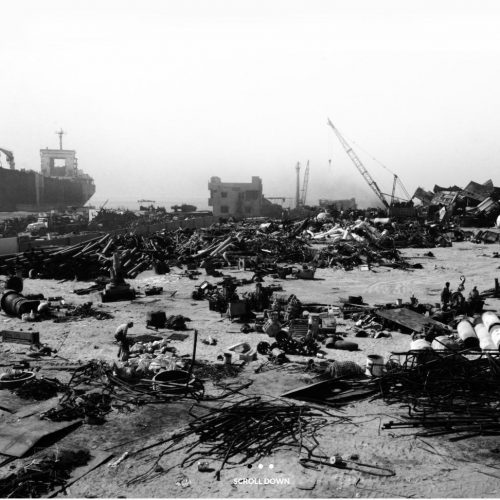Platform News – The European Union guides the shipping industry towards safe and clean recycling
The European Union Ship Recycling Regulation is now fully applicable. From 31 December 2018, EU-flagged commercial vessels above 500 GT must be recycled in safe and environmentally sound ship recycling facilities that are included on the European List of approved ship recycling facilities.

To be included in the European List, ship recycling facilities, irrespective of their location, have to comply with a number of safety and environmental requirements. In fact, these are standards under which European yards have had to operate for many years. The beaching method is not allowed, and requirements related to downstream toxic waste management as well as labour rights are included. Facilities operating in the EU are approved by their national authorities for listing, whilst the European Commission assesses applications received from the ship recycling facilities located in third countries.
European shipping companies account today for about one third of the end-of-life tonnage beached in in Bangladesh, India and Pakistan.

Faced with also a mounting demand from investors to avoid using beaching yards, ship owners claim that the EU List must be expanded to include yards that have obtained a so-called Statement of Compliance with the Hong Kong Convention. 76 beaching yards in Alang have already obtained such Statements from consultants hired by the facilities themselves: a box-ticking exercise strongly denounced as green-washing by NGOs.

In a recent report, the Platform and T&E provide data to show that there currently is enough capacity at the 26 yards on the EU List to handle the recycling of EU flagged ships. However, it is very simple for ship owners to swap their EU flag to that of an non-EU flag at end-of-life. Comoros, St Kitts and Nevis and Palau are particularly popular flags of convenience for vessels that are sold to beaching yards.

NOTE
[1] A report written jointly by Ecorys, the classification society DNVGL and Erasmus University School of Law, and published by the European Commission in July 2016, looks into the possibility of introducing a financial incentive to enhance safe and environmentally sound ship recycling. The report recommends that contributions for a ship recycling licence are collected from all ships visiting EU ports, regardless of their flag. The capital amount accumulated during the operational life of the vessel would be set aside for the ship and be earmarked to reduce the cost gap between substandard and sustainable end-of-life ship management. This amount would only be paid back to the last owner of the vessel if the ship is recycled in a facility approved by the EU.
Related news

Platform News – Performance With Bare Hands (Live) in Brussels
The NGO Shipbreaking Platform invites you to attend the artistic performance With Bare Hands (Live) on Friday 21 June in Brussels (Belgium).
... Read More
The Toxic Tide – 2023 Shipbreaking Records
2023 shipbreaking records: most shipping companies continue to opt for the highest price at the worst scrapping yards.
... Read More
Platform News – European Union sets a global standard for sustainable ship recycling: NGOs call on shipping companies to use EU approved yards
Today, the European Commission (EC) publishes technical guidance for ship recycling facilities that want to be approved under the EU Ship Recycling Regulation. The European Union (EU)… Read More

Press Release – European commission reports on feasibility of a financial instrument
The European Commission released its report on the viability of a financial incentive for sustainable ship recycling under the EU Ship Recycling Regulation this week. Whilst… Read More

Press Release – Investigations on the Harrier tighten as it reaches Turkey for recycling
Norwegian press DN revealed this summer that Aqualis Offshore and insurance company Skuld Maritime Agency are under investigation for their involvement in the attempt to illegally export… Read More

Press Release – The hypocrisy of better beaches: winners of the “Public Eye Investigation Award” shed light on shipbreaking in Alang and Swiss companies’ involvement
Gie Goris and Nicola Mulinaris received Public Eye’s “Investigation Award”.
... Read More

